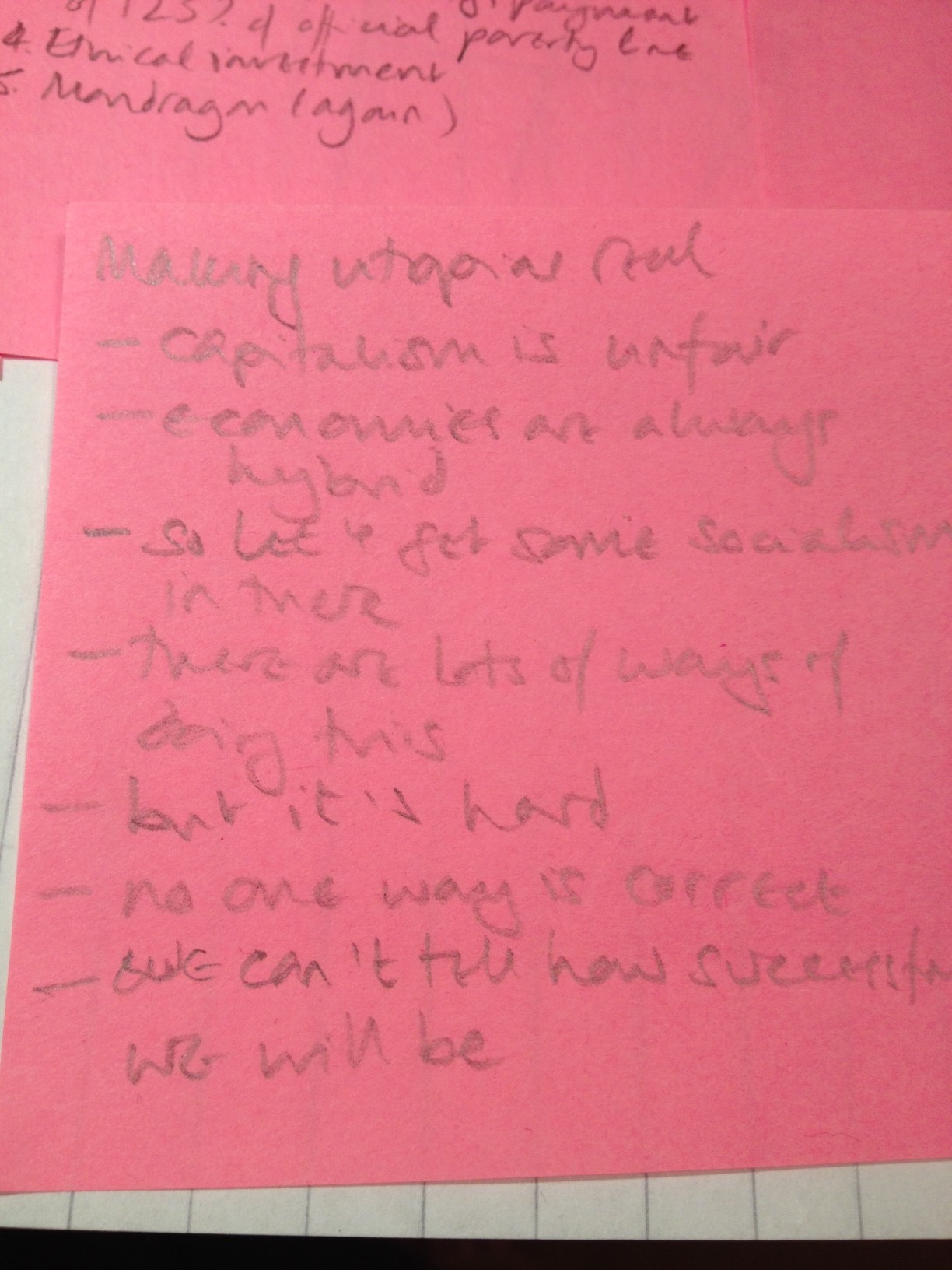This interesting paper, Germs, Social Networks and Growth, uses a network model to explore the diffusion of technologies – ideas – in different kinds of society: an open, individualist one compared to a collectivist one with fewer external contacts. The authors, Alessandra Fogli and Laura Veldkamp, sum it up thus:
“Our theory for why some societies have growth-inhibiting social structures revolves around the idea that communicable diseases and technologies spread in similar ways – through human contact. We explore an evolutionary model, where some people favor local “collectivist” social networks and others do not. People who form collectives are friends with each others’ friends. The collective has fewer links with the rest of the community. This limited connectivity reduces the risk of an infection entering the collective, allowing the participants to live longer. But it also restricts the group’s exposure to new technologies. An individualist social network with fewer mutual friendships speeds the arrival of new technologies, which increases one’s expected economic success and favors reproductive success.”
What’s more, the type of society is endogenous:
“In countries where communicable diseases are inherently more prevalent,the high risk of infection for individualists makes the individualist trait die out. A collectivist social structure that inhibits the spread of disease and technology will emerge. In countries where communicable diseases are less prevalent, the collectivist types will be less economically and reproductively successful. Greater reproductive success of individualists causes the network to become fully individualist.”
They test the model using historical data on technology diffusion and epidemics, and find a strong link between individualism and productivity growth driven by technology adoption.
This work touches on a number of economic literatures: on technology diffusion; on social capital; on the effects of culture on growth; and on the role of institutions in development. It’s a very interesting paper, and reminded me of two wonderful books. One is obviously Jard Diamond’s [amazon_link id=”0099302780″ target=”_blank” ]Guns, Germs and Steel[/amazon_link], although the argument is obviously a twist on Diamond’s case that European explorers took diseases into previously isolated populations. The other – for the metaphor of viral ideas – is Neal Stephenson’s brilliant novel [amazon_link id=”0241953189″ target=”_blank” ]Snow Crash[/amazon_link].
[amazon_image id=”0099302780″ link=”true” target=”_blank” size=”medium” ]Guns, Germs and Steel: A short history of everybody for the last 13,000 years[/amazon_image]
[amazon_image id=”0241953189″ link=”true” target=”_blank” size=”medium” ]Snow Crash[/amazon_image]


